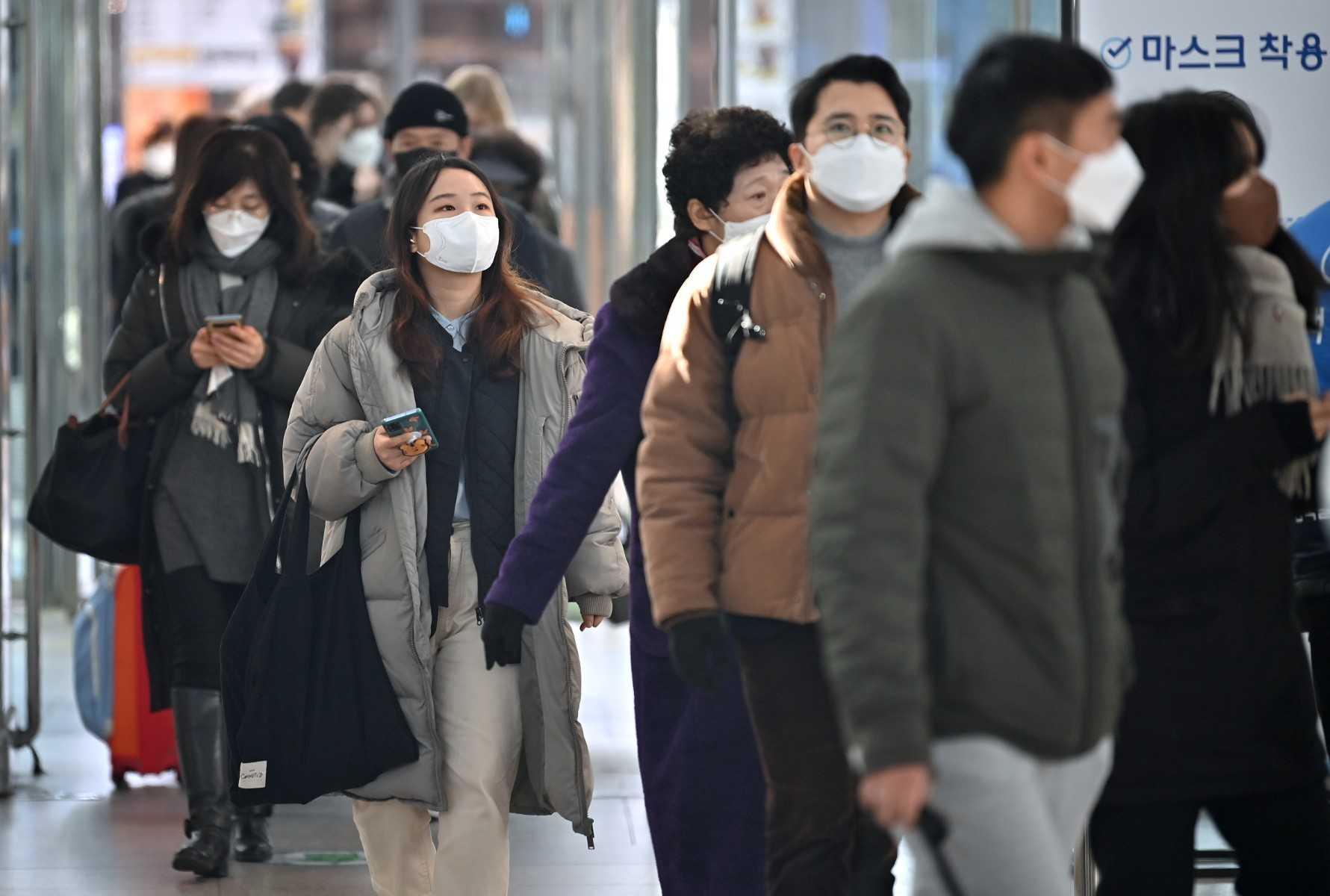South Korean inflation raises risk of widening worker unrest
The soaring cost of living has pressured workers to push for higher pay, while the easing of Covid-19 restrictions has made it easier to organise labour actions, academics and activists say.
Just In
For years, a separate class of South Korean shipyard workers - hired through contractors - say they endured wages barely one-third regular workers', got no paid sick leave for Covid, and routinely rode to worksites in the back of a pickup truck while others sat safe and warm inside their vehicles.
This year, they said they'd had enough.
About 100 contract workers at Daewoo Shipbuilding and Marine Engineering launched a 51-day strike, demanding a 30% wage hike and drawing national attention to the plight of South Korea's contract workers - nearly 30% of the salaried work force by some estimates - who say they have been pushed to the breaking point by surging inflation and lagging wages.
That strike ended this month after the threat of police intervention and only a 4.5% wage increase, but academics and labour activists warned it could be the canary in the coalmine, heralding a new wave of agitation by contract workers who have long borne the brunt of the country's corporate cost cutting.
"The problem of lower wages and fewer benefits in indirect employment is so prevalent that (labour action) could boil over at any company," said Jang Seok-won, director of public relations at the Korea Metal Workers' Union.
He noted that, while contracting was most widespread in construction, it was also common in manufacturing industries such as autos, steel and shipbuilding.
Last month, a nationwide truckers' strike that ground industrial sites and ports to a halt also included discontented contract workers, said Park Jung-hoon, an official with the truckers' union.
That strike cost industry more than US$1.2 billion according to labour ministry estimates, while challenging the pro-business government of President Yoon Suk-yeol who took office in May.
The soaring cost of living, with June inflation rising to a 24-year high of 6.0%, has pressured workers to push for higher pay, while the easing of Covid-19 restrictions has made it easier to organise labour actions, academics and activists said.
"Contract workers have problems like unstable employment, but the biggest problem is low pay," said Kim Jae-min, a labour attorney and head of an activist group for labour rights.
"As inflation goes up steeply, this could lead to discussions and discontent."
Labour action
The labour ministry does not publish statistics on the number of workers employed through contractors, but academics and activists estimate they account for about 6 million of South Korea's 21 million salaried workers.
As aggressive agitating over the past several decades brought sizeable wage gains and strengthened labour laws for South Korea's unions, companies increasingly secured workers through contractors not subject to the same requirements.
Contract workers have also at times resorted to strikes, but the Daewoo shipyard strike could signal intensified action ahead to narrow the gap with their more protected peers.
"Historically people tend to refrain from striking when the economy is bad, but right now it's a case of, 'We can't bear it any longer'," said Lee Byoung-Hoon, professor at Chung-Ang University specialising in labour relations.
"These temporary and subcontracted workers... their standards of living are at rock bottom, the state of the economy matters less."
Unionised workers at second-tier subsidiaries of South Korean tech major Naver, who say their conditions are similar to indirect contractors, have begun labour action to seek wage increases at the same rate as the parent company's.
Naver declined comment.
For the Daewoo shipyard, the action by contract workers forced the halt of a ship launch for the first time in 44 years and cost it an estimated US$400 million.
"Over the past five to six years, shipbuilding contract workers' real income shrank, so we could no longer make a living with the wages we receive at the shipyard," Lee Kim Choon-taek, a senior official at the shipyard contract workers' union, told Reuters.
Contract workers said they were only paid about the minimum wage of 9,160 won per hour, even for critical work such as welding. Many have more than 10 years of experience.
That would equate to 2 million won (US$1,526) or less a month, about one-third the average annual pay last year of 67 million won for workers hired directly, according to company filings.
President Yoon called the strike action illegal and signalled possible police intervention to end the crippling sit-in. His ministers lauded the final settlement as an important precedent for resolving disputes according to the law.
Daewoo executives said in a statement this week that the company would create a new model for a cooperative coexistence with contract workers and resolve conflict through communication.
But the workers, in a union statement on Wednesday, hinted at the possibility of more conflict to come.
"The strike struggle is over but the problem of low wages for contract workers has not been resolved at all."
Subscribe to our newsletter
To be updated with all the latest news and analyses daily.
